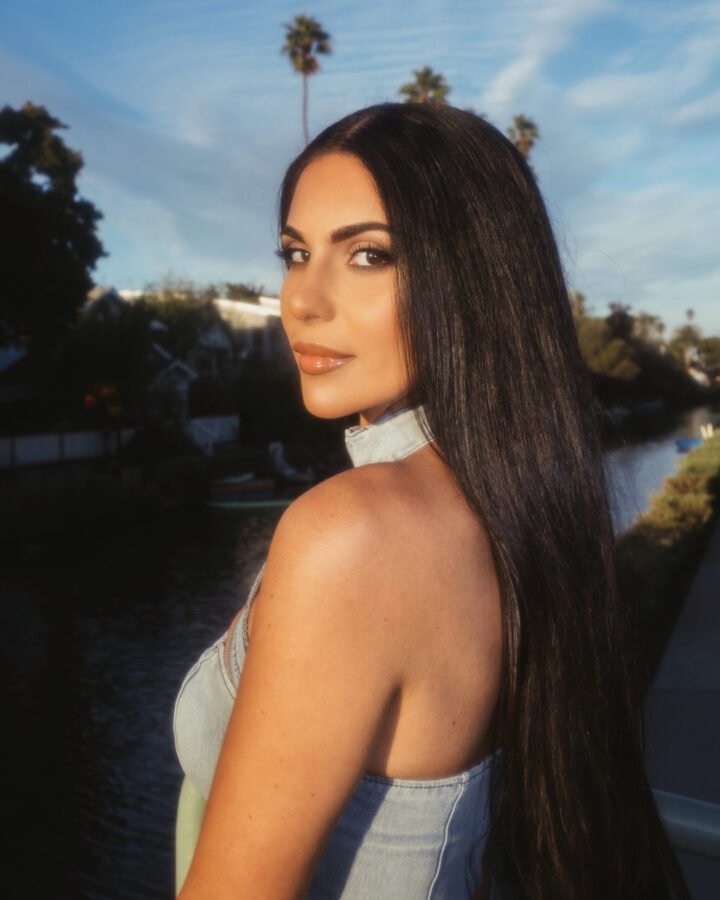Not many musicians are as graceful as Chrissy Spratt. From deciding to make covers to songs she never knew had a genre, to gaining an unwavering fanbase that points her towards artists that tie her songs together. She speaks with calm humility, “I’m not stepping into this like I am already that girl. I’m confident, but I don’t come in with that attitude”, yet her words carried the unmistakable weight of self assurance.
Over the past few years, Canadian singer and songwriter Chrissy Spratt has steadily built a loyal following online — most notably on TikTok, where she has amassed over four million followers. Much of her popularity stems from her viral music covers, particularly those of Nigerian songs. With her soft, arresting vocals and surprising mastery of local dialects, Chrissy has captured the attention of audiences across cultures, earning both admiration and curiosity as a westerner who sings African melodies with uncanny ease.
Beyond the covers that made her a viral sensation is a more intimate and inspiring story. Chrissy’s journey as an independent artist is one marked by resilience, creativity, and balance — managing the dual worlds of content creation and expressing herself through her original music. The years of unfazed balance has prepared her place in the scene and now, she steps into a new chapter with her debut EP, Maybe Next Time, a carefully crafted body of work that explores the emotional spectrum of relationships and showcases the artist behind the viral voice.
As the release of her debut project draws closer, Chrissy speaks with us about the inspiration behind the EP and her evolving identity as an artist.
Chrissy Spratt is widely known for her serenading covers but outside that is a whole different story birthed from journey into music. Can you give us a brief back story?
I have always been singing, even right from childhood but it wasn’t until I got into high school that I overcame my shyness and finally sang in front of people. It was “Oh Happy Day”. One of my teachers made me the lead singers for this special rendition of the school choir and that is where it all started. Due to the positive reception I received, I decided to open my Youtube channel and started making covers.
You are well loved in the afrobeats space. Is there any connection between you and African music or any particular reason you are drawn to the culture?
Honestly, I just love the music. When I just started making these covers to afrobeats music, I didn’t really know it had a genre of its own. To me, it was just good, popular music. It wasn’t until I started getting comments and requests from my audience to do more and more of those songs that I realised that I am in this culture called Afrobeats.
From the title down to the two singles already out, this EP feels layered — emotionally and sonically. What’s the story you’re telling across this project?
It’s the story of a relationship; from its beginning to the end, – the good times and the not so good times. It is a story about all the emotions phased in relationships.
“In Too Deep” feels deeply personal. Was there a particular moment or experience that sparked that song into existence?
On the day the song was recorded, I was in the studio with Daramola, the producer, and we were just vibing to the beat then somehow, we got into the relationship and love talk. The idea we tried to tap into is that of a person who went too far because of love and made mistakes. What we wanted to pass across is the fact that everybody makes mistakes and these mistakes are sometimes useful in getting clarity.
“Call On Me” features two Nigerian artists — Nonso Amadi and Serotonin. How did that collaboration come to life, and what made them the right fit for this record?
Call On Me kicked off with Nonso Amadi and I. We were in the studio vibing, the instrumental loop came on and Nonso started freestyling then I started freestyling melodies also and that was how the love song came to be. During playback, I sensed a missing piece. I knew that there would be a feature to tie the song together and take it to a new height.
So, I went ahead to ask my audience which artist they would want to see me collaborate with and there were different replies from Burna boy to Kizz Daniel and Davido but then, I saw some comments on Serotonin. I hadn’t heard of him at the time so, when I looked him up, I literally went “whoa! His voice is perfect”, and his melodies were amazing. I just knew he was going to complete the song.
As Maybe Next Time approaches release, what’s one thing you hope listeners feel when they hear it from start to finish?
To anyone who listens to the project, I want them to find it relatable. I want them to feel like I understand them and they understand me.
Finally, what would success look like for you with this project?
Success would be people listening to the songs, loving the songs enough to know the lyrics. When I go on tour, I would love to hear the audience sing them back to me.


